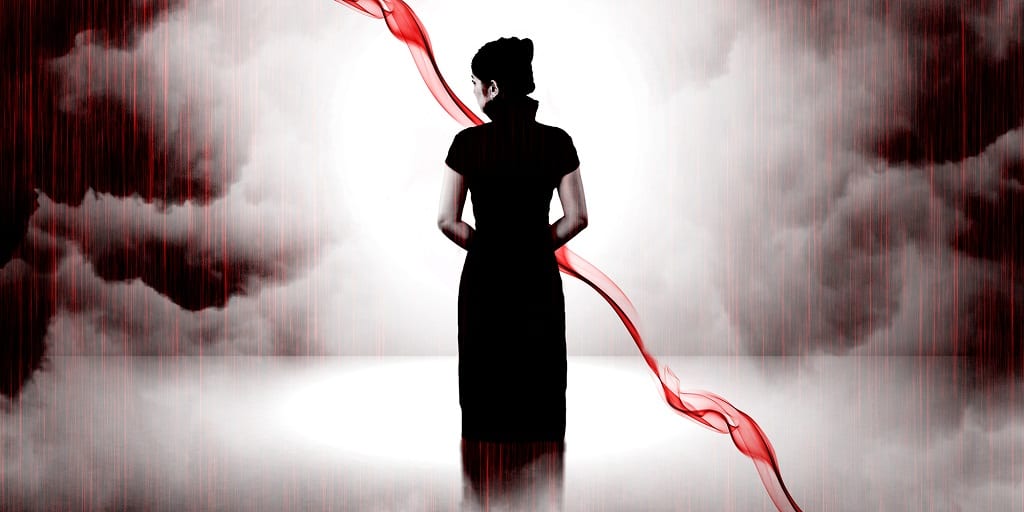The Shanghai Opera and Ballet Companies are at the Coliseum in London for a limited season. The opera that is part of this season is Thunderstorm, an impressive work by the composer Mo Fan. Based on a play by Cao Yu, a Chinese author with many admirers, it tells the tale of a prosperous family in pre-revolutionary China and how dark family secrets emerge to destroy them. It is told in compelling music and in a dramatic style that entirely suits the growing sense of impending tragedy as the thunderstorm of the title approaches the city in which the family lives. The ending of the story is certainly melodramatic but it is portrayed with such conviction by this fine cast of singers – and in music of such dramatic power – that it proves a genuinely moving climax to a fine production.
Mo Fan says that his intention was to compose an opera in the western style, but to introduce elements that would be familiar to his Shanghai audience. From the perspective of an opera-goer in London this strange mix of a western operatic sound with Chinese traditional music is at first disconcerting. The overture begins with a lush string sound reminiscent of Puccini but very soon the theme is repeated on the erhu, a Chinese stringed instrument that sounds very exotic in the setting of a London opera house.
The story is of a father, his two sons and his unhappy wife. The sons, Ping and Chong, are half-brothers and it is the revelation of the identity of Ping’s mother that sets the scene for the tragedy that overtakes the family. The role of Ping is sung by Han Peng who has a very fine tenor voice and who brings to the role as the tormented son real intensity and dramatic force. His acting style is out of tune with the style that we now expect on the opera stage in London – there is a lot of “striking poses”- but in the context of this production it works brilliantly.
There are fine performances too from Zhang Fantao as Ping’s naïve and innocent half-brother and from Ji Yunhui as the servant girl Sifeng. Zhang Jianlu as the dictatorial father Puyuan makes heavy weather of some of his music but invests his role with a sense of authority undermined by corruption that is key to the direction of the story. The outstanding performance though is by Xu Xiaoying as the unhappy wife, Fanyi, with a dark secret of her own. Xu has a superb soprano voice and an ability to bring dramatic truth to extreme emotional situations. The crisis that leads her to reveal the secret of Ping’s parentage brings from her beautiful singing in the midst of emotional turmoil, in the best tradition of Puccini heroines.
The music is a strange hybrid. Using the full resources of the standard opera orchestra it sounds sometimes like Puccini, sometimes like Bizet, and, in the storm scenes, reminds me of Britten. But the chord sequences are always surprising, rarely conforming to the cadences that sound usual to the western ear. As my ears attuned to this new musical style – and to the striking staging, making full use of video back projection and conjuring up visual effects with real dramatic impact – I was drawn in under the spell of a powerful musical imagination. A wonderful evening of world opera.

